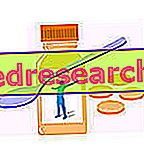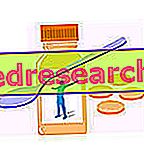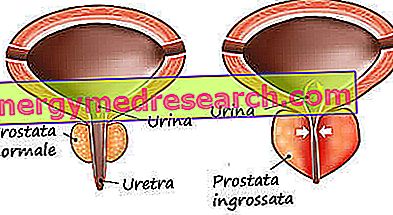Definition
"Binge drinking" is an expression that means "binge of alcohol" or "drink to get drunk" and indicates the intake of 5 or more alcoholic beverages in a very narrow time interval (approximately 2-3 hours). The phenomenon results in an immediate drunkenness, with loss of control.
Binge drinking is the expression of a youth fashion, particularly widespread among 18-24 year olds. Furthermore, this pattern of alcohol consumption can be associated with the perpetration of crimes, violent behavior and suicide attempts.
In any case, this habit is considered one of the major current health problems both due to the lowering of the perception of risk related to drunkenness, and to the consequences of the acute alcohol intoxication resulting from it.
Most common symptoms and signs *
- Aggression
- Anemia
- Arrhythmia
- Asthenia
- palpitations
- Coma
- Conati
- Convulsions
- Difficulty concentrating
- Language difficulties
- dysphoria
- Dehydration
- Temporal and spatial disorientation
- Mood disorders
- Hepatitis
- Hypoaesthesia
- Hypoglycemia
- Hypotension
- Nausea
- Nervousness
- Nystagmus
- Memory loss
- Loss of coordination of movements
- presyncope
- Drowsiness
- Confusional state
- Sweating
- Fainting
- Tachycardia
- Tremors
- Dizziness
- Double vision
- Blurred vision
- He retched
Further indications
Excessive alcohol intake over a short period of time (30 minutes to a few hours) results in acute intoxication.
Initially, binge drinking causes depression of central nervous system activity, decreasing anxiety, tension and behavioral inhibitions. At the same time, however, the attention and the ability to judge and concentrate fall.
Binge drinking also causes memory disorders, motor incoordination, dizziness, nystagmus, mood changes and slowing of perceptions. The gait becomes uncertain and the speech clumsy.
Other effects of binge drinking include hypotension, hypoglycemia and loss of consciousness. Severe intoxication can develop into ethyl coma and death by respiratory arrest.
When it is a frequent habit, binge drinking can cause negative effects on the various systems of the human body, such as neurological, cardiac, gastrointestinal, blood, endocrine and musculoskeletal. In particular, it can induce long-term cognitive imbalances and is associated with an increased risk of ischemic cerebral haemorrhages.
The strategy to combat binge drinking involves the dissemination of warning messages to public opinion and information on the potential risks of the phenomenon. Furthermore, the development of educational programs and specialist assistance can be effective.



